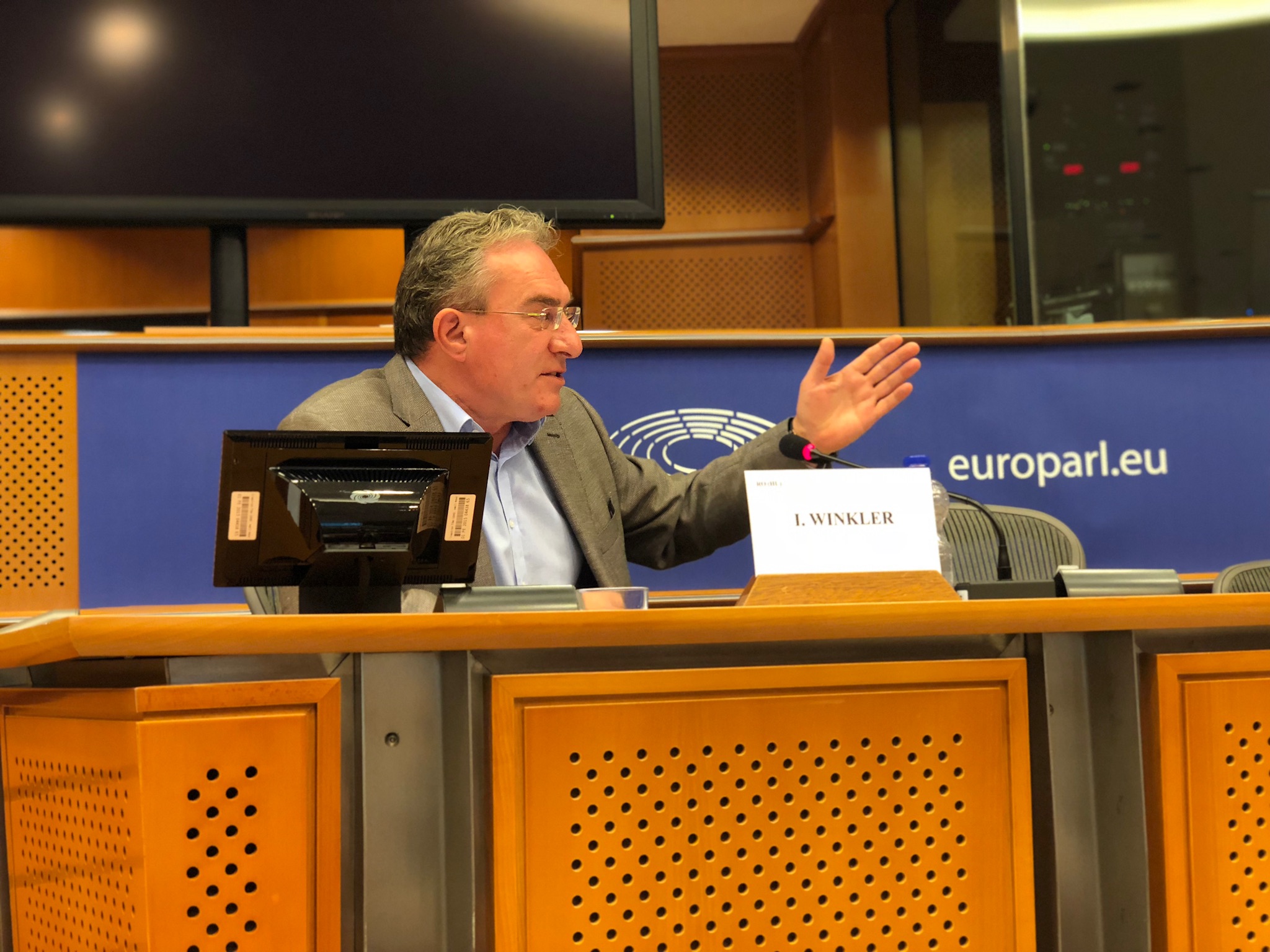The European Union Chairmanship of the Kimberley Process in 2018 should be an opportunity to foster consensus towards a progressive way forward in terms of reviewing and reforming the mechanism, reflects Iuliu Winkler, Vice-Chair of the International Trade Committee (INTA) in the European Parliament (EP), during a meeting with Hilde Hardeman, Head of the European Commission’s Service for Foreign Policy Instruments (FPI). INTA hosted a debate on 09 July on the EU perspectives for the 2018 Chairmanship of the KP.
The review and reforming of the process, Winkler considers, should enable the instrument to preserve its relevance for contemporary challenges on the ground. This entails a review of KP´s efficiency, discussing potential permanent monitoring and advisory structures, a possible augmentation of its governance structures, as well as a closer look to the scope of the KP.
While understanding that KP is subject to different nuances, some of the key conclusions of the debate on the Conflict Minerals Regulation could be applicable in the process of reviewing and reforming the KP. One of those conclusions was that all stakeholders play a very important role, so we have to see as many of them included in this process. Indeed, KP is a member driven organisation, with governments playing the main decision-making roles; however, Winkler argues that industry should not be left outside the consultations on the review, as these actors, along with civil society, could bring much added value to the reform process.
Additionally, capacity on the ground is very important; no matter how ambitious the goals of our development policy, unless we build capacity on the ground we will never be able to reach sustainable results and impact positively on the lives of people belonging to local communities. We in the EPP are always advocating for solid and sustainable development policies in our global engagements. Our ambition is to effectively improve the lives of people, together with our partners on the ground.
The global climate and African security and development imperatives have seen substantial changes since the KP´s conception in 2002. As the times are changing, so should our foreign policy tools. The KP´s initial conflict management rationale should be hence shifting towards conflict prevention and more importantly sustainable socio-economic development on the ground. We should strive to build a reform agenda on the principle of inclusiveness, bringing all relevant players together. Our aim should be to use our influence to leave something positive behind. The EU Chairmanship should thus lay the grounds for efforts that will effectively and responsibly contribute to global initiatives of fighting poverty and bringing about sustainable growth and prosperity in our global partners.
Background
The Kimberley Process, launched in 2002 by a coalition of governments, civil society and industry representatives, is a mechanism that sets out requirements for the oversight of imports and exports of rough diamonds in the participating members, with the aim of breaking the link between conflict financing and the illicit trade of rough diamonds. The KP has 54 participants, representing 81 countries, with the European Union and its 28 Member States counting as a single participant, accounting for approximately 99.8% of the global production of rough diamonds.








